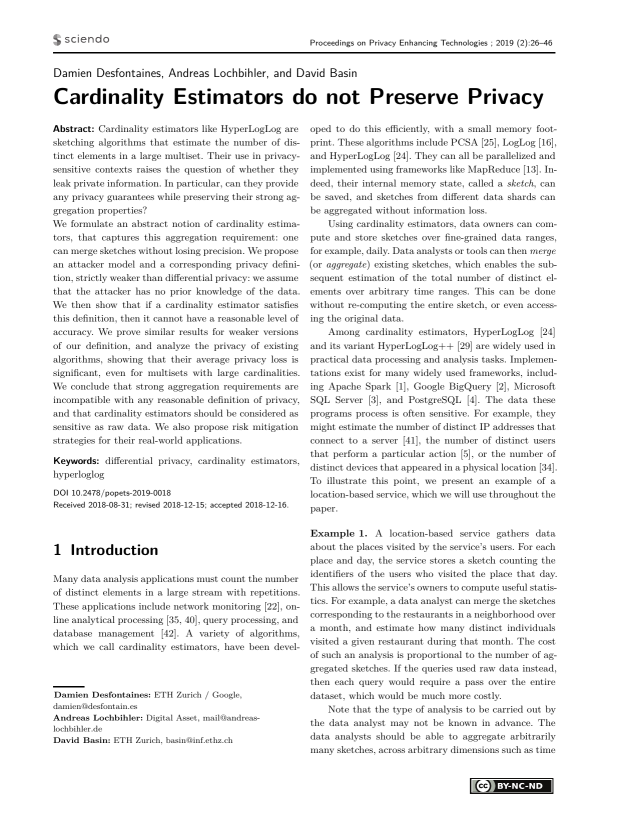Cardinality Estimators do not Preserve Privacy
Authors: Damien Desfontaines (ETH Zurich / Google), Andreas Lochbihler (Digital Asset), David Basin (ETH Zurich)
Volume: 2019
Issue: 2
Pages: 26–46
DOI: https://doi.org/10.2478/popets-2019-0018
Abstract: Cardinality estimators like HyperLogLog are sketching algorithms that estimate the number of distinct elements in a large multiset. Their use in privacysensitive contexts raises the question of whether they leak private information. In particular, can they provide any privacy guarantees while preserving their strong aggregation properties? We formulate an abstract notion of cardinality estimators, that captures this aggregation requirement: one can merge sketches without losing precision. We propose an attacker model and a corresponding privacy definition, strictly weaker than differential privacy: we assume that the attacker has no prior knowledge of the data. We then show that if a cardinality estimator satisfies this definition, then it cannot have a reasonable level of accuracy. We prove similar results for weaker versions of our definition, and analyze the privacy of existing algorithms, showing that their average privacy loss is significant, even for multisets with large cardinalities. We conclude that strong aggregation requirements are incompatible with any reasonable definition of privacy, and that cardinality estimators should be considered as sensitive as raw data. We also propose risk mitigation strategies for their real-world applications.
Keywords: differential privacy, cardinality estimators, hyperloglog
Copyright in PoPETs articles are held by their authors. This article is published under a Creative Commons Attribution-NonCommercial-NoDerivs 3.0 license.

